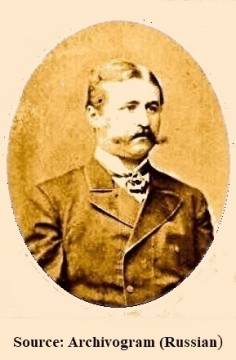
Ivan M. Obolensky
1. WHERE TO BEGIN.
In conclusion a few words to avoid a possible misunderstanding. We have spoken continuously of systematic planned preparation, yet it is by no means our intention to imply that the autocracy can be overthrown only by a regular siege or by organized assault. Such a view would be absurd and doctrinaire. On the contrary it is quite possible, and much more probable historically, that the autocracy will collapse under the impact of one of the spontaneous outbursts or unforeseen political complications that threaten it from all sides constantly.1
2. THE JOURNAL SVOBODA.1
The popular writer leads his reader to profound thoughts, to profound study, proceeding from simple and generally known facts. With the aid of simple arguments or striking examples he shows the main conclusions to be drawn from those facts and arouses ever new questions in the mind of the thinking reader.
The popular writer does not presuppose a reader who does not think, who cannot or does not wish to think; on the contrary, he assumes a beginner's serious intention to use his head and aids him in his serious and difficult work—leads him, helps him over his first steps and teaches him to go forward independently.
3. REVIEW OF HOME AFFAIRS. FAMINE.1
Prince Obolensky the Governor of Kherson Gubernia 2 immediately declared war upon all who dared to write or speak about the famine in Elizavetgrad or to appeal for public aid to the famine-stricken or to create private groups and invite private persons to organize such aid. Zemstvo doctors wrote to the newspapers stating that famine was raging in the uyezd, that people were ill and dying and that the "bread" they ate was something unbelievable, not deserving to be called bread. The governor launched a polemic against the doctors and published official denials.
4. IVAN M. OBOLENSKY

An individual in Kharkov fired four shots at the Governor, Prince Obolensky, wounding him and a policeman.
The attempt on the life of Prince Obolensky originated in the death sentence emitted by the revolutionary committee of "Organization For the Struggle." The revolver used by the individual bore the following inscription, "Revenge For the spilled blood of the peasants! Death to the Imperial Executioner, enemy of the people!" Kharkov's police chief says that students belonging to some affluent families are involved in the conspiracy.
Telegrams from St. Petersburg report a great recrudescence of agitation in Finland's public opinion regarding the policies of the new governor, Prince Obolensky. His latest measures annulled Finland's privilege of minting its own currency. The decision has aroused so much anger that everything points to a fresh outbreak of troubles shortly.
A student in Odessa fired several shots at Prince Obolensky, wounding him. The perpetrator was arrested.
Prince Obolensky was appointed procurator of the Holy Synod.
The newspaper Helsingfors Posten claims being able to guaranty that Prince Sviatopolk-Mirsky will be named Governor General of Finland in substitution of Prince Obolensky whose resignation has been accepted.
Prince Obolensky was relieved of his post as procurator of the Holy Synod but retains his seat in the Imperial Council.
Reports from Russia's capital announce the divorce of President Witte's wife. She will marry Prince Obolensky.
| And Now For Something Completely Different |